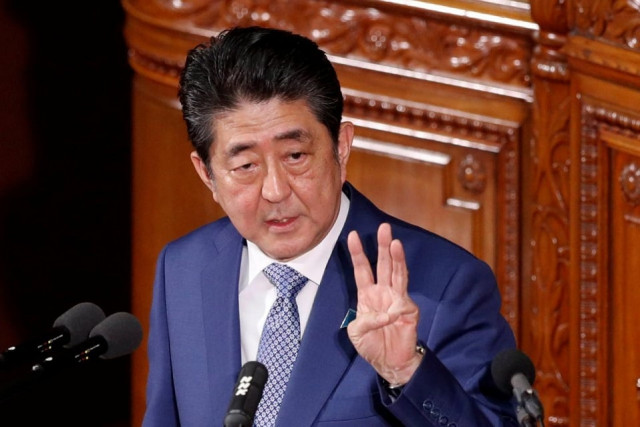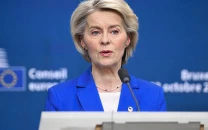Japan's Abe keeps upper house grip but no 'supermajority'
Shinzo Abe remains on track to become the country's longest-serving prime minister later this year

Japan's Prime Minister Shinzo Abe.
PHOTO: REUTERS/ FILE
Japan's ruling coalition has retained its grip on the country's upper house, but failed to secure a "supermajority" that would ease the path to constitutional reform, results showed Monday.
The outcome of Sunday's election means Shinzo Abe remains on track to become the country's longest-serving prime minister later this year, and shores up his mandate ahead of a tax hike in October.
He fell short however of achieving a "supermajority" of two-thirds of the seats in the upper house, a result that could have helped him achieve a long-running goal of amending the country's pacifist constitution.
Japan's Abe on course to retain majority in upper house election
But experts said that since many within Abe's coalition are uneasy about the plans, the failure to secure a supermajority was unlikely to change the prime minister's calculations significantly.
"Losing the supermajority is not necessarily a major setback for Abe," wrote analyst Tobias Harris of the Teneo consultancy group in a note.
"Instead, by leading the ruling coalition to another national election victory -- his sixth in his nearly seven years as LDP (Liberal Democratic Party) leader -- Abe has cemented his status atop Japan's political system," Harris added.
Abe's LDP and its coalition partner Komeito took 71 of the 124 seats up for grabs in Sunday's vote, accounting for about half of the upper chamber.
The two parties already control 70 seats in the other half of the 245-seat chamber that was not being contested.
Analysts said Abe's coalition has benefitted from a weak opposition, and voter turnout underscored apathy in the electorate, falling below 50 per cent for the first time since a 1995 upper house election.
Trump tees up Japan summit with Abe golf match
Abe has long harboured dreams of revising the constitution, which prohibits the country from waging war and maintaining a military.
But public support for revising the document is low and there is discomfort with the idea even among the ruling coalition.
Abe's win is likely however to shore up his support ahead of a controversial hike of the consumption tax to 10 per cent later this year, as well as trade negotiations with Washington.



















COMMENTS
Comments are moderated and generally will be posted if they are on-topic and not abusive.
For more information, please see our Comments FAQ